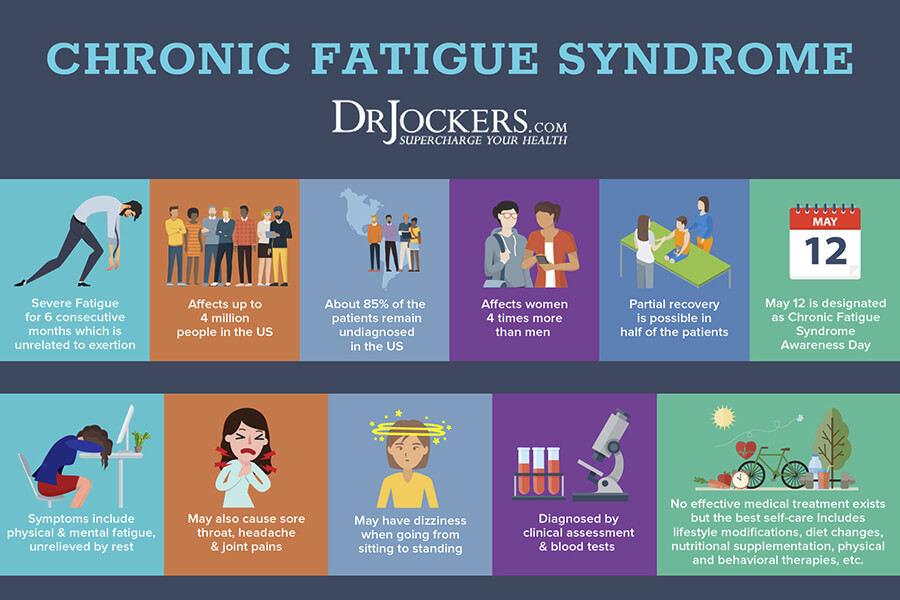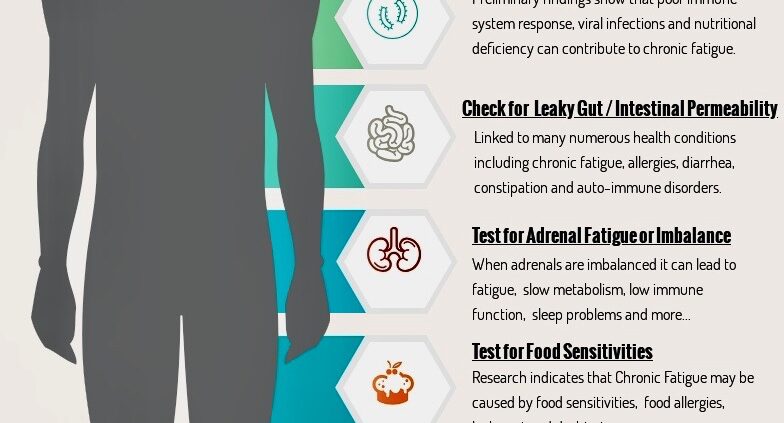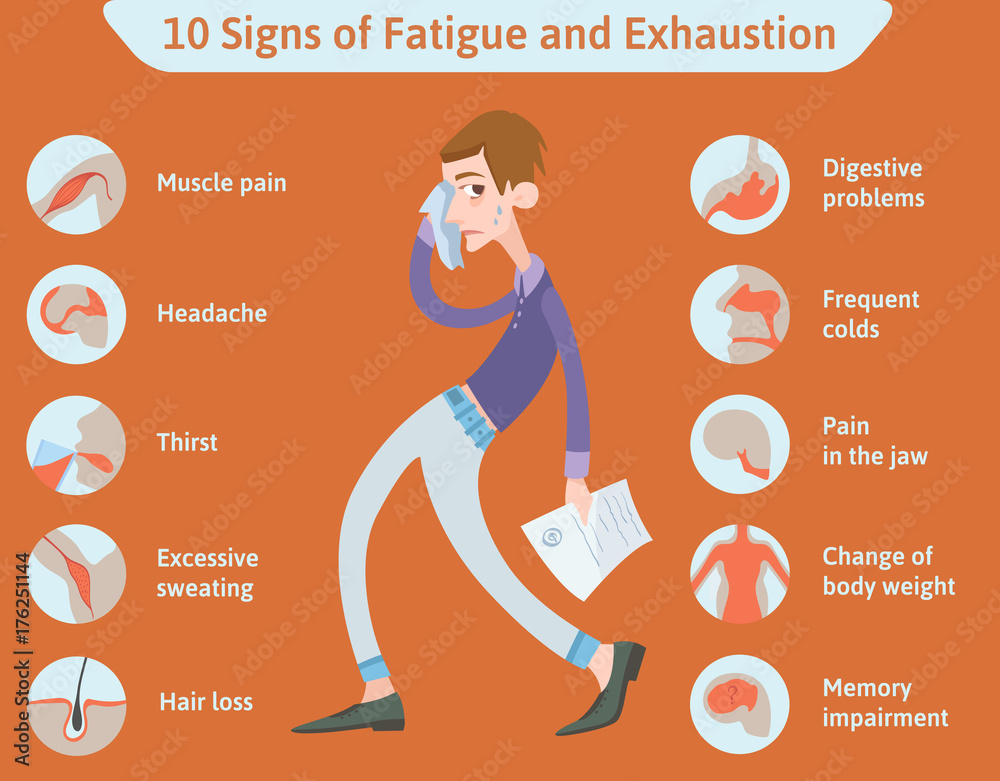Discover the surprising factors that may trigger Chronic Fatigue Syndrome, from genetics to environmental influences. Don’t miss out on this!
Table of Contents
- Introduction to Chronic Fatigue Syndrome
- Understanding Our Body’s Energy
- What are Triggers?
- Sleep Issues and Chronic Fatigue Syndrome
- Could Food be a Trigger?
- When Bugs Make You Tired
- When the Body Attacks Itself
- Trauma and Tiredness
- Can We Predict Chronic Fatigue Syndrome?
- Protecting Ourselves from Triggers
- What We’ve Learned About Triggers
- Frequently Asked Questions (FAQs) About Chronic Fatigue Syndrome
Introduction to Chronic Fatigue Syndrome
Chronic Fatigue Syndrome is a condition that causes people to feel extremely tired and worn out all the time. Imagine waking up in the morning and feeling as if you haven’t slept at all, no matter how much you rest. That’s one of the challenging parts of living with Chronic Fatigue Syndrome.
For some people, chronic fatigue syndrome can be triggered by certain factors in their lives. These triggers can make the symptoms of chronic fatigue syndrome start or become worse. Understanding what these triggers are can help us learn how to manage this condition better.
Understanding Our Body’s Energy
Have you ever experienced a time when you felt so tired that even after resting, you still didn’t feel refreshed? This feeling of constant tiredness is similar to what people with chronic fatigue syndrome experience. Let’s take a closer look at what happens in our bodies when we don’t have enough energy.
How Our Body’s Energy Works
Our body relies on energy to function properly, just like a car needs fuel to run. This energy comes from the food we eat and is used for everything we do, from playing games to thinking and even sleeping. When we don’t have enough energy, we feel tired and sluggish, just like a low battery in a toy.
People with chronic fatigue syndrome often feel this tiredness all the time, even after getting enough sleep. It’s like their body’s battery isn’t charging properly, leading to constant exhaustion.
What It Feels Like
Imagine trying to play your favorite game, but your body feels heavy, and you struggle to move. Even the simplest tasks like getting out of bed or talking to friends become hard work. That’s how some people with chronic fatigue syndrome feel every day, making it challenging for them to enjoy life to the fullest.
Understanding our body’s energy can help us empathize with those who struggle with chronic fatigue syndrome and remind us of the importance of taking care of our health.
What are Triggers?
Triggers are like little switches in our bodies that can turn on or make worse certain conditions, like chronic fatigue syndrome. Imagine them as keys that unlock a door to feeling extra tired or weak.

Image courtesy of via Google Images
These triggers can be different things, like not getting enough sleep, eating food that your body doesn’t agree with, or even going through a really tough or scary experience.
So, when we talk about triggers for chronic fatigue syndrome, we mean those specific things that can kickstart this condition or make it harder to deal with.
Sleep Issues and Chronic Fatigue Syndrome
When we sleep, our bodies recharge like a battery getting ready for a new day. But what happens when we can’t get good sleep? One of the ways this can happen is through a condition called sleep apnea. Sleep apnea is when someone has trouble breathing while they sleep. This lack of quality sleep can trigger chronic fatigue syndrome, a condition that makes people feel very tired all the time.
Imagine trying to run a race with only half the energy you need – that’s how it might feel for someone with chronic fatigue syndrome. Sleep apnea can make this feeling even worse because the body doesn’t get the rest it needs to function properly. This lack of quality sleep can lead to exhaustion and a constant feeling of fatigue.
Could Food be a Trigger?
Let’s talk about how the food we eat could play a role in triggering chronic fatigue syndrome. For some people, their bodies might not agree with a protein found in wheat called gluten. When this happens, they might have a condition called celiac disease.
Understanding Celiac Disease
Celiac disease is a condition where the immune system reacts strongly to gluten, a protein found in wheat, barley, and rye. When someone with celiac disease eats foods containing gluten, their immune system attacks the lining of the small intestine, leading to various symptoms like fatigue, digestive issues, and even anemia.
Connecting Celiac Disease and Chronic Fatigue Syndrome
People with celiac disease often experience chronic fatigue as one of the symptoms of their condition. This constant feeling of exhaustion can impact their daily lives and make it challenging to stay active and energized.
Managing Food Triggers
If you suspect that certain foods might be triggering your chronic fatigue syndrome or if you have been diagnosed with celiac disease, it’s essential to work with a healthcare provider or a registered dietitian. They can help you create a well-balanced diet that avoids gluten-containing foods and incorporates nutritious alternatives to support your overall health and energy levels.
By being mindful of how different foods affect your body and taking steps to manage any food-related triggers, you can better care for yourself and potentially reduce the impact of chronic fatigue syndrome on your daily life.
When Bugs Make You Tired
Have you ever been outside playing and suddenly felt very tired for no reason? Well, sometimes bugs can make you feel that way, but not just any bugs – ticks. When these tiny creatures bite you, they can cause something called Lyme disease, which can make you feel super tired and not like yourself. Let’s find out more about how this happens and what you can do to stay safe.
Understanding Lyme Disease
Lyme disease is a sickness that you can get from the bite of an infected tick. These ticks are often found in wooded or grassy areas, so it’s essential to protect yourself when spending time outside. The most common symptom of Lyme disease is a rash that looks like a bull’s-eye, but feeling extremely tired is also a common sign. When Lyme disease is not treated early, it can cause even more severe symptoms and last a long time.
Protecting Yourself from Ticks
To avoid getting Lyme disease and feeling exhausted all the time, it’s crucial to take some simple steps. When you go outside, especially in areas where ticks are common, make sure to wear long sleeves and pants to cover your skin. Using insect repellent can also help keep ticks away. After coming indoors, remember to check yourself for any ticks and remove them carefully if you find any.
Remember, bugs like ticks can make you feel very tired if they cause Lyme disease. By being cautious and protecting yourself from these bugs, you can stay energetic and healthy to enjoy all your fun outdoor activities! Always be mindful of your surroundings, and don’t forget to take care of yourself.
When the Body Attacks Itself
In some cases, our own bodies can turn against us, causing a condition known as Graves’ disease, which can trigger chronic fatigue syndrome. Graves’ disease is like a mix-up in our body’s defenses. Instead of protecting us, it mistakenly attacks parts of our body.

Image courtesy of via Google Images
Imagine if your body’s defense system was a superhero trying to protect you from villains, but suddenly started fighting against your own team. This can cause a lot of confusion and chaos inside your body, making you feel extremely tired and worn out.
It’s like having a spy in your body sending wrong messages, telling your warriors to attack rather than defend. This ongoing battle can drain your energy levels, leading to the overwhelming fatigue associated with chronic fatigue syndrome.
Graves Disease:
Graves’ disease mainly targets the thyroid gland, a small but mighty organ located in your neck. The thyroid plays a crucial role in regulating your body’s energy levels, metabolism, and overall well-being. When the body’s defense system goes haywire and mistakenly attacks the thyroid, it disrupts its normal functioning.
This can result in symptoms like extreme tiredness, unexplained weight loss, nervousness, and rapid heartbeat. The relentless attack on the thyroid gland disrupts the body’s energy balance and can leave you feeling depleted and exhausted.
So, when your body decides to turn against itself in conditions like Graves’ disease, it can set off a chain reaction that ultimately leads to chronic fatigue syndrome. Understanding this inner struggle can help us grasp the complex nature of these interconnected health issues.
Trauma and Tiredness
When something really scary or very sad happens to us, it can stay with us for a long time. These experiences are known as trauma. Trauma can make people feel upset, scared, or nervous even after the event is over. Sometimes, trauma can lead to something called post traumatic stress disorder (PTSD).
How Trauma Can Trigger Chronic Fatigue Syndrome
Some researchers believe that experiencing trauma can trigger chronic fatigue syndrome (CFS). When our bodies go through a lot of stress, like a traumatic event, it can affect our immune system and how our body handles energy. This can make us feel tired all the time, even when we get enough rest.
Coping with Trauma-Induced Chronic Fatigue Syndrome
If you or someone you know is feeling tired all the time after a traumatic event, it’s important to talk to a doctor or a counselor. They can help you understand your feelings and find ways to cope with the tiredness. It’s okay to ask for help, and taking care of our mental health is just as important as taking care of our physical health.
Can We Predict Chronic Fatigue Syndrome?
Chronic Fatigue Syndrome is a condition that can make you feel extremely tired all the time. But can we actually predict if someone might develop this condition? Let’s take a closer look at some clues that might help us understand and maybe even anticipate chronic fatigue syndrome.

Image courtesy of via Google Images
Looking for Early Signs
While it’s not always possible to predict with absolute certainty if someone will develop chronic fatigue syndrome, there are some early signs that could give us a hint. Paying attention to symptoms like persistent fatigue, muscle pain, and cognitive difficulties might help catch the condition in its early stages.
| Trigger | Description |
|---|---|
| Physical Exertion | Overexertion or physical activity beyond one’s limits can trigger symptoms of chronic fatigue syndrome. |
| Stress | Emotional or mental stress can exacerbate symptoms or trigger a flare-up of chronic fatigue syndrome. |
| Illness or Infection | Previous illnesses or infections, such as viral infections, can trigger the onset of chronic fatigue syndrome. |
| Environmental Factors | Exposure to certain toxins, pollutants, or chemicals can trigger symptoms of chronic fatigue syndrome in some individuals. |
| Hormonal Imbalance | Changes in hormone levels or imbalances can contribute to the development or exacerbation of chronic fatigue syndrome. |
Understanding Triggers
By learning about the various triggers that can lead to chronic fatigue syndrome, we might be able to identify individuals who are at a higher risk. Factors like sleep disorders, autoimmune conditions, infections like Lyme disease, or traumatic experiences could serve as red flags for potential development of this exhausting condition.
Keeping Track of Health
Regular check-ups with healthcare providers and maintaining open communication about any symptoms or concerns can also aid in predicting chronic fatigue syndrome. Monitoring overall health and addressing any underlying conditions that could potentially trigger the syndrome may help in early detection and prevention.
While it’s not always easy to predict chronic fatigue syndrome, being aware of potential triggers and staying proactive in managing one’s health can certainly play a key role in identifying and possibly preventing the onset of this debilitating condition.
Protecting Ourselves from Triggers
One crucial way to protect ourselves from triggers that might lead to chronic fatigue syndrome is by ensuring we get enough sleep. Sleep is like fuel for our body, and when we don’t get the right amount, we can feel tired and drained. By establishing a regular bedtime routine and creating a cozy sleep environment, we can promote better sleep quality and reduce the risk of triggering chronic fatigue syndrome.
Avoiding Tick Bites
Another important step in safeguarding ourselves against triggers is to stay away from ticks. These tiny bugs might seem harmless, but some of them carry harmful bacteria that can cause illnesses like Lyme disease. If infected with Lyme disease, apart from other symptoms, extreme tiredness can also occur. Therefore, when spending time outdoors, it’s crucial to wear appropriate clothing and use insect repellents to prevent tick bites.
Stress Management
Managing stress is key to protecting ourselves from triggers of chronic fatigue syndrome. Stressful situations can take a toll on our mental and physical well-being, leading to exhaustion. By practicing relaxation techniques such as deep breathing, meditation, or engaging in enjoyable activities, we can help lower stress levels and reduce the likelihood of triggering chronic fatigue syndrome.
What We’ve Learned About Triggers
Throughout this article, we’ve discovered that certain factors can trigger chronic fatigue syndrome, a condition that can make people feel extremely tired all the time. Let’s recap what we’ve learned about these triggers to better understand how to protect ourselves and stay healthy.

Image courtesy of via Google Images
Sleep Issues and Chronic Fatigue Syndrome
One of the triggers we discussed is sleep problems, like sleep apnea, where someone might have trouble breathing while they sleep. This lack of restful sleep can lead to chronic fatigue syndrome, causing extreme tiredness and other symptoms.
Could Food be a Trigger?
Another trigger we explored is certain foods, such as those containing gluten, which can trigger celiac disease. This autoimmune condition can make people feel worn out, contributing to chronic fatigue syndrome.
When Bugs Make You Tired
We also learned that being bitten by a specific type of tick can cause Lyme disease, which is characterized by fatigue and other flu-like symptoms. This infection can trigger chronic fatigue syndrome in affected individuals.
When the Body Attacks Itself
Graves’ disease, an autoimmune condition where the body starts attacking its own tissues, can result in extreme tiredness. This disease is a known trigger for chronic fatigue syndrome.
Trauma and Tiredness
Experiencing trauma, such as a frightening event or ongoing stress, can lead to post-traumatic stress disorder (PTSD), which is linked to triggering chronic fatigue syndrome. It’s essential to address and manage traumatic experiences to reduce the risk of developing this condition.
By understanding these triggers and taking proactive steps to care for our health, we can reduce the likelihood of developing chronic fatigue syndrome. It’s important to prioritize sleep, maintain a healthy diet, protect ourselves from tick bites, and manage stress effectively to safeguard our well-being.
Frequently Asked Questions (FAQs) About Chronic Fatigue Syndrome
Living with chronic fatigue syndrome can be difficult, and it’s normal to have questions about this condition. Here are some common questions that people may have:
How Do I Know If I Have Chronic Fatigue Syndrome?
If you constantly feel extremely tired, have trouble concentrating, experience muscle or joint pain, and struggle with unrefreshing sleep, you might have chronic fatigue syndrome. It’s essential to consult with a healthcare provider for a proper diagnosis.
Can Chronic Fatigue Syndrome Be Cured?
Unfortunately, there is no known cure for chronic fatigue syndrome. However, various treatment approaches aim to manage symptoms and improve the quality of life for individuals with this condition. These may include lifestyle changes, therapy, and medication.
Are There Specific Tests to Diagnose Chronic Fatigue Syndrome?
Diagnosing chronic fatigue syndrome can be challenging because it doesn’t have a definitive test. Healthcare providers often rely on ruling out other possible causes of symptoms through blood tests, imaging studies, and evaluations of medical history.
Is Chronic Fatigue Syndrome Contagious?
No, chronic fatigue syndrome is not contagious. It is a complex medical condition that involves a combination of factors such as genetics, immune system dysfunction, and environmental triggers, but it cannot be transmitted from person to person.
Can Children and Teens Develop Chronic Fatigue Syndrome?
While chronic fatigue syndrome is more common in adults, children and teens can also develop this condition. It can significantly impact their daily activities, school performance, and overall well-being, so early intervention and support are crucial.
How Does Chronic Fatigue Syndrome Impact Daily Life?
Chronic fatigue syndrome can profoundly affect a person’s daily life by causing persistent fatigue, cognitive difficulties, physical pain, and disruptions in sleep patterns. It may lead to limitations in work, school, social interactions, and recreational activities.






